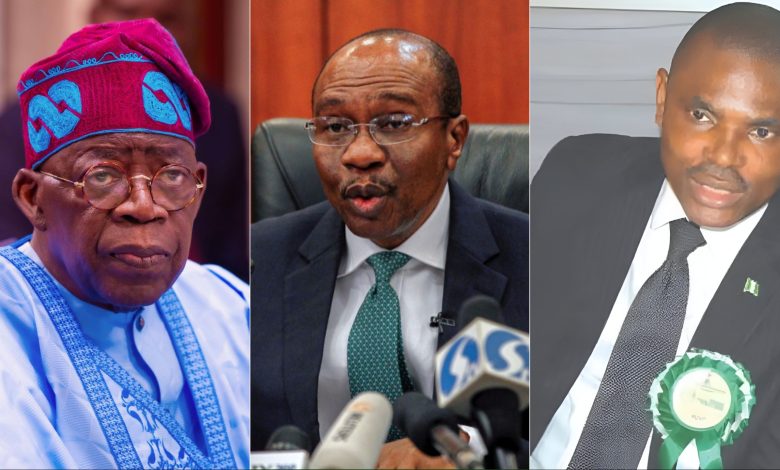Buhari Did Not Approve Naira Redesign, New Report Reveals Who Emefiele Connived With To Do It

A new report has revealed that former President Muhammadu Buhari, did not approve the Naira redesign policy himself.
Jim Obaze, the Special Investigator on the Central Bank of Nigeria and Related Entities, exposed alleged corruption during the tenure of former CBN governor Godwin Emefiele. The final report, titled ‘Report of the Special Investigation on CBN and Related Entities (Chargeable Offences),’ was presented to President Bola Tinubu on Wednesday.
According to the report, Emefiele illegally lodged billions of naira in at least 593 bank accounts in the United States, United Kingdom, and China without the approval of the apex bank’s board of directors and the CBN Investment Committee. The investigator found that £543,482,213 was deposited in fixed deposits in UK banks alone without any authorization.
The report also revealed that President Buhari did not approve the naira redesign; instead, it was Tunde Sabiu, his nephew, who suggested it to Emefiele in September 2022. The redesign proposal was only mentioned to the CBN board on December 15, 2022, after Emefiele had already awarded the contract to the Nigerian Security Printing and Minting Plc on October 31, 2022.
Emefiele reportedly contracted the redesign of the naira to De La Rue of the UK for £205,000 pounds after the NSPM indicated it couldn’t deliver the contract promptly. The investigation found that N61.5bn was earmarked for printing the new notes, with N31.79bn already paid. As of August 9, 2023, N769bn of the new notes were in circulation.
The probe also revealed fraudulent use of N26.627tn in Ways and Means of the CBN, as well as the misuse of the COVID-19 intervention fund. The CBN under Emefiele allegedly approved the debiting of N124.860bn from the Consolidated Revenue Fund Account on October 9, 2020.
Additionally, anticipatory approval was granted for the payment of N250bn to the Federal Government of Nigeria to address challenges related to low revenue inflow and salary payments.




